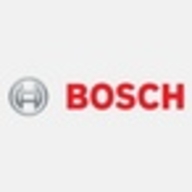

Appian and Bosch inubit are competitive products in business process management. Appian leads in pricing and support, while Bosch inubit offers greater feature capabilities for complex systems.
Features: Appian offers robust process automation, a low-code development environment, and strong integration capabilities for rapid application deployment. Bosch inubit focuses on strong integration functions, adaptability with complex systems, and extensive process orchestration features for intricate workflows.
Ease of Deployment and Customer Service: Appian provides quick deployment with its cloud-based architecture and is supported by responsive customer service. Bosch inubit allows for a more traditional on-premises deployment, offering extensive customization that may require specialized knowledge but suits tailored solutions.
Pricing and ROI: Appian's setup cost is competitive, with benefits in reduced time-to-market and efficiency gains leading to positive ROI. Bosch inubit's setup cost is higher due to integration capabilities and complexity, but it may offer justified long-term returns for organizations needing detailed customization.

Appian is a unified low-code platform and solution used by businesses to build enterprise applications and workflows. This product adapts to the needs of clients and the technologies they are already using to combine their data in a single workflow and maximize resources. The platform has four main components through which it transforms the work process for companies of various sizes. They are:
Appian is utilized across a diverse set of industries, including automotive and manufacturing, energy and utilities, education, financial services, telecom and media, transportation, retail, insurance, healthcare, and life sciences. The most frequent use cases of Appian are customer journey, governance, risk and compliance, operational efficiency, supply chain, distributed order management, and environmental, social, and governance (ESG) management.
Appian Features
Appian has various features that allow users to create solutions for their businesses. These features can be separated into a few groups according to function, including automation, low-code application development, and integrations and data. Some of the most frequently used features of Appian include:
Appian Benefits
The benefits of using Appian include:
Reviews from Real Users
A practice leader - digital process automation at a computer software company values Appian highly because the product is easy to develop, low-code, and has a good user interface.
Alan G., an advisory board member at Codecon VR, Appian offers a clear application life cycle, easy to learn documentation, and comes with a fundamentals course.
We monitor all Business Process Management (BPM) reviews to prevent fraudulent reviews and keep review quality high. We do not post reviews by company employees or direct competitors. We validate each review for authenticity via cross-reference with LinkedIn, and personal follow-up with the reviewer when necessary.